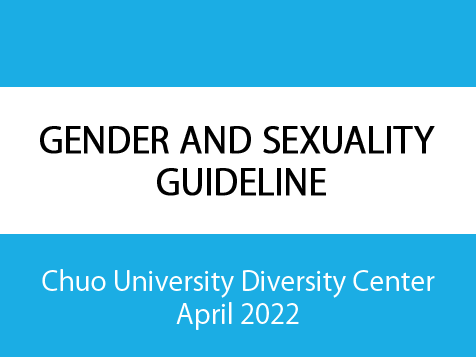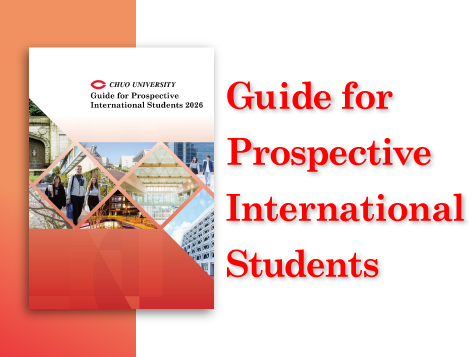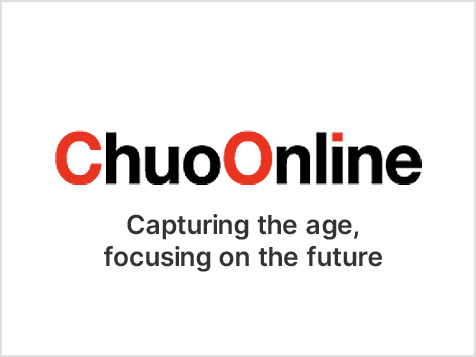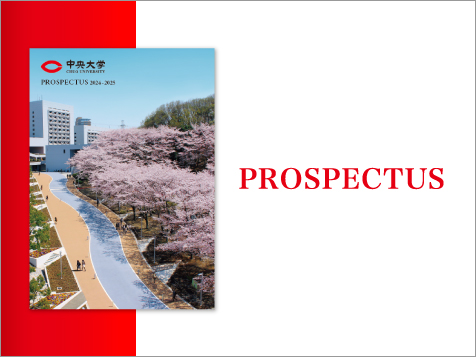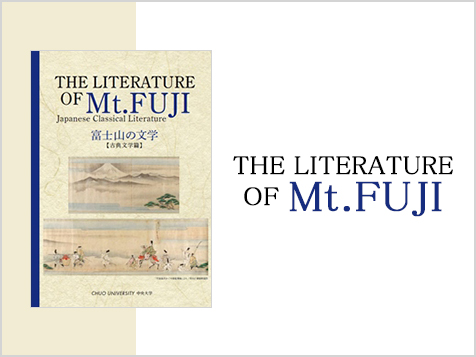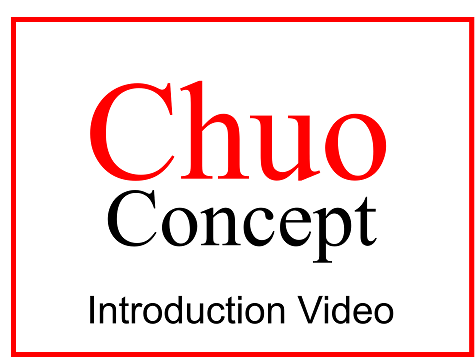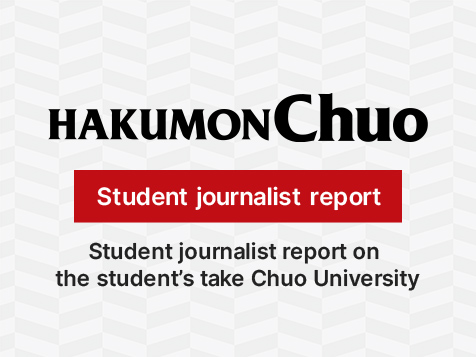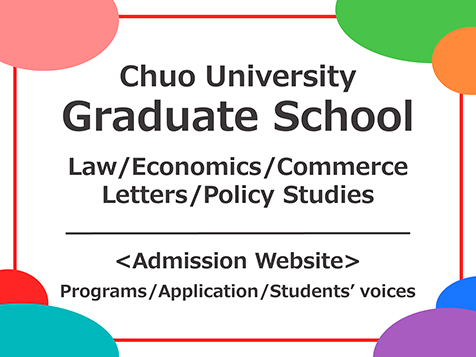About Us
President’s Message
Becoming an “Open University” that Fosters “Knowledge into Action” to Open a New Era
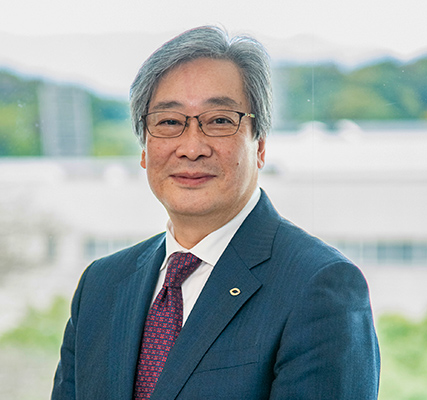
The world has been experiencing repeated natural disasters, the COVID-19 pandemic, and the threat of wars, and we face uncertainty as the economic and social conditions surrounding us change dramatically. However, it is also true that human beings have been able to overcome the chaotic changes that have faced every generation. This is because we are equipped with the intelligence and aptitude to grasp and analyze situations accurately and to seek the best solutions. What is important is to consciously link this aptitude and intelligence to our actions. To do so, we must take into account diverse paradigms of humanity and society that are understood and recognized by diverse peoples living in various countries and regions with different cultures and histories. Herein lies the significance of advancing academics and the role of universities.
Founded in 1885, Chuo University is proud of its 138 years of steady fulfillment of such a role. Under the founding spirit of "Fostering the Ability to Apply Knowledge to Practice,” Chuo University has built a history of tradition and achievement, symbolized by Hakumon, the University's original stone White Gate, and has worked with a mission to contribute to society by nurturing individuals who go on to support society and lead the way for the future. Today, as a comprehensive university and educational institutes with 8 faculties, 8 graduate schools, 2 professional graduate schools, 4 affiliated high schools, 2 affiliated junior high schools, and 9 research institutes, this motto of our founding spirit has been passed down from generation to generation, shaping Chuo’s diverse academic research and broad, practical education.
Academia is inevitably related to the real world and human society, and should be developed through interaction with the activities of society, such as researchers discovering issues in everyday life and developing relevant theories. Academia always moves with the times and evolves to adapt to changes in society. This is our approach to academic research, rooted in the educational philosophy of Chuo’s founding spirit, noted above. Accordingly, "ability" refers to a foundation of skills that can be applied in society, and "fostering the ability" refers to cultivating not only knowledge, but also the capabilities needed to communicate, discuss, and make informed decisions through experiences and interactions with others, while embracing life-long learning.
On the other hand, in order to build sustainable social infrastructure, education and research at universities in the future must take an increasingly multifaceted view of academic fields that leads to expansion of interdisciplinary research and education based on the fusion of multiple disciplines. In particular, it is essential to implement research and education integrating humanities and sciences through focusing on the interrelationship between science and technology (natural science fields) and human and social behavior (humanities and social sciences fields). Furthermore, it is crucial to enhance the academic environment and educational programs, as well as to promote sports activities so that students can lead healthy and independent lives at the University. In recent years, taking on responsibilities expected from the society, Chuo University has adopted the “Chuo University Declaration in Support of Diversity” and a commitment to “Engaging with the Sustainable Development Goals at Chuo University.” In addition, university-wide efforts include:
- a) Establishment of the “Chuo University Sports Charter” (2022)
- b) Opening of the Chuo Sports Center (2022)
- c) Acquisition of AMBA International Certification of the Chuo Graduate School of Strategic Management Business School (2022)
- d) MEXT accreditation for the “Mathematics, Data Science and AI Smart Higher Education Programs Certification System(Literacy Level)(2022)
- e) Establishment and enhancement of the Industry-Academia-Government Collaboration and Social Co-creation Floor at the Korakuen Campus (2022)
- f) Formulation of the “Chuo University: Policy for the Usage of Digital Technology during classes” (2022)
- g) Opening of the Myogadani Campus for the relocation of the Faculty of Law and the Graduate School of Law (2023)
- h) Opening of the Surugadai Campus for the relocation of the Chuo Law School and the Chuo Graduate School of Strategic Management Business School (2023)
- i) Opening of the Koishikawa Campus Sports facility in central Tokyo (2023)
- j) Establishment of the Graduate School of Global Informatics (2023)
Moving forward, in order to nurture individuals with the intelligence and initiative to play an active role in the era of Society 5.0, defined as "a human-centered society that balances economic development and the resolution of social issues through a system that highly integrates cyberspace (virtual space) and physical space (real space)," Chuo University will promote educational DX (digital transformation), and further facilitate the development of student-participatory programs and collaboration with foreign universities and international organizations, through the effective combination of distance education and face-to-face education that enhances educational effectiveness. Furthermore, Chuo is committed to helping students continuously learn from the world and develop the ability to apply their intellect to society while growing with each other. We will continue to open and share our University's abundant human and material resources with the local community and those beyond, and actively seek to interact with society. With these goals in mind, we aim to become "a more open Chuo University" to realize learning that leads to a solid future.
April 2023
President
Hisashi KAWAI
Biography
1958 Born in Tokyo
1977 Graduated from Chuo University High School at Koganei
1981 Graduated from Chuo University Faculty of Commerce
1983 Completed a Master’s degree from Chuo University Graduate School of Commerce
Work Experience
1983 - 1996 Several Full-time Faculty positions at other universities
1996 Assistant Professor in Chuo University Faculty of Commerce
2000 - Mar. 2019 Professor of Chuo University Faculty of Commerce
2011 - Oct. 2015 Dean of the Faculty of Commerce and a member of Chuo University Board of Directors
May - Oct.2018 Vice President of Chuo University
Nov.2018 - Mar.2019 Director of the Preparatory Office for the Faculty of Global Management
Apr.2019 - Present Professor of the Faculty of Global Management
Apr.2019 - May 2021 Dean of the Faculty of Global Management
Apr.2019 - Present Member of Chuo University Board of Directors
May2021 - Present President of Chuo University
Area of Specialization
Accounting Information System Theory
